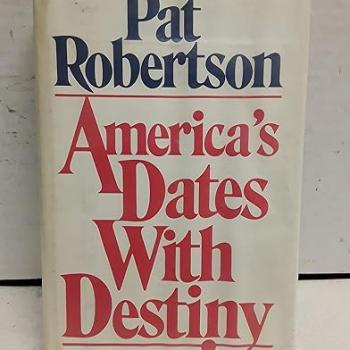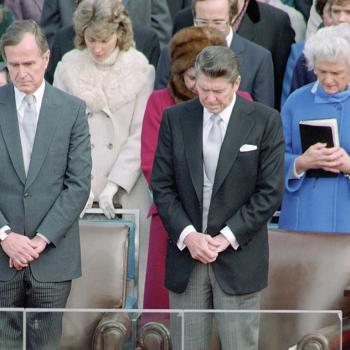The claim that any of the Founding Fathers were deists generates pushback among certain conservatives. This helps to account for the firestorm of controversy (which I covered for WORLD Magazine) over David Barton’s The Jefferson Lies and the book’s subsequent abandonment by Thomas Nelson Publishers. Barton argued that until late in life, Jefferson was an orthodox, Trinitarian Christian, but critics showed that Barton neglected evidence from early in life where Jefferson, among other things, denied the Trinity.
When I get questions about deism and the Founders, I quickly point out that we know Ben Franklin was a deist because he called himself a deist. That quiets most potential critics because, after all, we don’t want to argue with the Founders’ own words. (Although I did once have someone insist that Franklin does not, in fact, call himself a deist in his autobiography, but a Christian. Perhaps this was a postmodern interpretation of Franklin’s statement “I soon became a thorough Deist”?)
Part of the problem with calling any of the Founders deists is the difficulty of defining deism. What did that term mean in the eighteenth century? Could you be a deist and somehow believe in prayer, as Franklin apparently did, at least as of the Constitutional Convention? (Franklin made a failed motion for the convention to open its sessions in prayer.) Could you be a deist and say with Jefferson, “I am a real Christian”?
Arguments about whether any or all the Founders were deists usually are hamstrung by overly precise definitions of deism. Deists believed in God as the cosmic watchmaker, critics protest, so any sign that a person believed in prayer or Providence automatically disqualifies them. But deism in eighteenth-century Europe and America could mean many different things. Its adherents could range from people who had qualms about Calvinism, to those who criticized the corruptions of the church as “priestcraft,” to more radical deists who espoused beliefs that seem close to atheism.
We should also remember that “deism” and “deists” were terms probably more often used by critics against their opponents, rather than by deists themselves. Self-identifying deists like Franklin were quite rare in America, although scholarly work by Amanda Porterfield and others has recently suggested that deism and freethinking may have had a stronger presence in post-Revolutionary America than we had previously realized. Evangelical writers also magnified the perceived threat of deists to the Christian character of the republic, just as some popular Christian authorities today herald the imminent fall of most teenage Christians into the hands of secularists.

So what was deism? In spite of all its diversity, deism was a strain of rationalist religion – many of its advocates, like Jefferson, would have called themselves Christians – which focused on the ethical, rational requirements of true faith and criticized the authority of ministers and institutional churches. Many of them, especially in England and America, believed that there was a true core of Christianity that one could recover through attention to Jesus’s teachings alone. One important aspect of deism that we often miss is that its adherents could hardly imagine a world not organized on theistic moral categories, such as the inherent goodness of charity. Most deists really did consider themselves serious theists, and many considered themselves devotees of Jesus and his teachings. Their deism was not just a convenient cloak for atheism.
Both Franklin and Jefferson wanted to dispense with Christian dogma and recover the true faith, which was a quality of living rather than a set of arcane propositions which (as they saw it) the guardians of orthodoxy defended in order to protect their own power. This is why Franklin gave so much attention to tests of personal virtue, and experimented constantly with charitable projects. Likewise, Jefferson was almost obsessed with the person and teachings of Jesus, but believed that in his teaching and behavior Jesus served as the preeminent example of “human excellence,” and that his followers imposed claims about his divinity and resurrection after the teacher’s death. But neither Jefferson nor Franklin imagined that we could do without this recovered rationalist Christianity – it was the best guide we had to real virtue.
The deists’ closest descendants today are not the “new atheists” who have stirred up so much media chatter in recent years. Their closest descendants are probably liberal mainline Christians who see Jesus as their model but who eschew (or even deny) the particular, exclusive doctrines that have been associated with Christian orthodoxy for millennia. Even though it has had some very influential devotees, that kind of non-orthodox faith has never seemed to win or hold many adherents in America.
[Friends, you can sign up here for my Thomas S. Kidd author newsletter. Each newsletter will update you on what’s happening in the world of American, a religious and political history, and current events. It will contain unique material available only to subscribers, and each will help you keep up with my blog posts, books, and other writings from around the web. Your e-mail information will never be shared. Thanks!]












